Six years ago, Haren Thillainathan became blind and had to regain his confidence navigating London.
The 47-year-old from Tooting describes himself as someone who just ‘throws himself in’, but over the past few years the usual challenges of a busy metropolis have been added to by electric scooters which are not only silent and dangerous but technically illegal.
Last week, in a move that some deem counter-intuitive given the challenges authorities have faced with regulation, rental e-scooters hit London in the capital’s first legal trial roll-out.
Thillainathan is a member of London Sight Loss Council which is facilitated by London Vision, a platform for the diverse voices of blind and partially sighted individuals in the city who have published an open letter on the matter to the e-scooter trials coordinators, Transport for London (TfL) and London Councils.
The letter also went to the boroughs participating in the trials – the Royal Borough of Kensington and Chelsea, Hammersmith and Fulham, Richmond, and Ealing – and Canary Wharf which is also taking part.
Lambeth, Southwark and Westminster are seeking to participate soon, while the City of London is delaying its participation due to administrative errors.
London Vision believes pedestrians should be able to make safe journeys ‘with confidence and free from anxiety’, their letter detailing concerns over enforcing safe rider conduct, docking bays obstructing the pavements, and lack of consideration for more vulnerable pedestrians such as blind and partially sighted people.
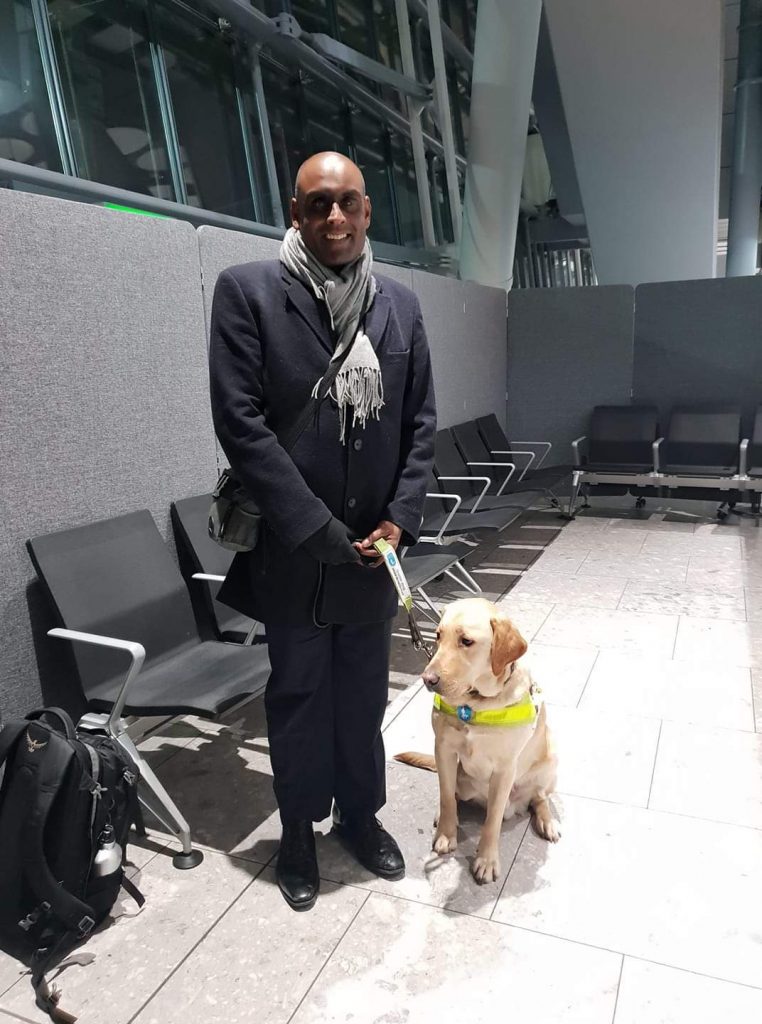
Thillainathan said: “We’re trying to lift the restrictions and come out of Covid so you have that safe environment giving the blind and partially sighted confidence to emerge with everyone else and start to resume life.
“But if you’re very anxious and aware that there are these trials starting that may impact that.
“I’m someone who just throws myself into it so I will just go through it but there are some times when even I will find it a bit stressful. And obviously there are some people who just don’t have that confidence so it can impact them a lot more.”
In May TfL announced that the e-scooter operators chosen as providers for the London trials, TIER, Dott and Lime, will have to abide by tougher safety standards than those set nationally, including:
- A lower maximum speed of 12.5mph than the 15mph national limit
- Lights at the front and the rear of the vehicles that are always on throughout any rental
- Audible warning systems that can be used without adjusting the rider’s grip of the handlebar
This last point is particularly important as Haren highlighted: “From my own experience I won’t know there’s an e-scooter nearby until it’s literally in front of my face or just very close to me because of the lack of noise.”
What is disappointing is that despite this reassurance from TfL, audible warning systems are not expected for two months according to the BBC, and instead e-scooters have been fitted with bells. London’s walking and cycling commissioner Will Norman said that the trial could not be stopped to fit them in.
Speaking to BBC London News, Norman also said e-scooter parking bays ‘are not on the pavements’, but, in Hammersmith, parking bays have been seen on the pavement simply marked with a white box.
These pose a particular threat to the blind and partially sighted, with the scooters obstructing the pavement and creating a hazard as the designated area cannot be easily detected with a cane.
London Vision development manager Jacqui Thomas, 48, from south London said: “The London Vision Sight Loss Council felt compelled to publish the open letter because of a huge increase in e-scooter use on London’s roads and pavements.
“Blind and partially sighted people in London are already struggling with social distancing measures, changed layouts of Tube stations and newly pedestrianised areas that have been made impassable by restaurants and pubs’ outdoor seating.
“Faced with thousands more silent vehicles on the streets, the Council wants to open a dialogue with operators, councils and TfL to ensure that the safety of pedestrians is properly taken into account and that the promised safety features – such as acoustic sounds and road surface sensors – are made mandatory.”
Sarah Gayton from the National Federation of the Blind UK has been following e-scooters since their beginnings in San Diego in 2018.
As a street access campaign co-ordinator living near Birmingham and Coventry, her job is to look at street design and urban environments and see how it will affect blind or partially sighted people from independently navigating those spaces.
At the beginning of June, Gayton wrote a letter advising TfL to halt the trials, raising concerns of e-scooter riders doubling up, passing the vehicles to friends, riding drunk or under the influence of drugs, scooters moved or knocked over cluttering the pavements, social pressures for young women to ride with boyfriends, and young women being harassed and intimidated by men on e-scooters.
She warned: “It’s an absolute cocktail of chaos that’s going to hit the streets of London. And if somebody somewhere doesn’t wake up, doesn’t actually ask the right questions, actually see and watch what’s going on there will be utter carnage.
“We know some of our members in London are actually petrified because of the illegal e-scooter activity and they’re terrified of what is going to happen through these trials. So, what happens to their independent mobility, what happens when they’re too scared to go out the door and walk on their own?”
Gayton has been documenting the e-scooter trials in Birmingham which began in September 2020, taking photos and videos which have featured in both local and national news.
She has also kept track of news reports of collisions involving e-scooters which have had three fatalities in the UK; the first involving TV presenter and Youtube star Emily Hartridge from Battersea who collided with a lorry whilst riding an e-scooter in 2019.
Gayton became particularly emotional recounting the risks posed to young children, describing e-scooters as ‘weapons’ which people are ‘not fully in control of’.
“There was a couple with a small toddler and I just had to go up to them and say these e-scooter riders tonight are out of control, they’re at risk. They picked the kid up immediately.
“That kid was learning to walk, these could have been its first steps in the city, as it should be able to. But what I witnessed was out of control men bombing it around the station area, going onto the pavements at breakneck speed.
“That little kid wouldn’t have stood a chance if they’d lost control of that e-scooter.
“I believe now that Birmingham is not safe for young children, it’s not safe for toddlers, it’s not safe for parents because something comes over these riders.”
Gayton also stressed the dangers of privately owned e-scooters to the owners themselves, citing four incidents of e-scooters catching fire, and called for better regulation rather than excuses.
“I’ve got a great sympathy for the police, everything is thrown at them, but they need to up their game and get more of these e-scooters off the streets because they’re terrifying and terrorising vulnerable pedestrians.”
It is not illegal to buy an e-scooter, as you can use it on private land, but it is still illegal to use a private e-scooter on roads and there are huge issues with regulation, with peers urging the government in May to crack down on illegal scooters before beginning the London trials on June 7.
The Evening Standard reported that more than 800 illegal e-scooters have been seized in London this year. Lord Berkeley of Labour claimed there could be 1 million illegal e-scooters on UK roads by the end of the year, not including the thousands from the trials.
A Metropolitan Police statement about the trials said: “The Metropolitan Police are pleased to support this trial to enable the government to be informed of how these e-scooters may form part of our transport infrastructure in the future.
“However we’d like to remind everybody that private e-scooters used outside this trial remain illegal and will be dealt with by way of seizure.”
Before the London e-scooter trials began, TfL’s e-scooter trial lead Helen Sharp said: “We’re doing all we can to support London’s safe and sustainable recovery from the coronavirus pandemic and it’s clear that e-scooters could act as an innovative, greener alternative to car trips.
“Safety remains our number one priority and we will work closely with the e-scooter operators, London Councils and the boroughs to ensure rigorous standards are consistently met.
“We will also continue to work closely with all of our stakeholders, including TfL’s Independent Disability Advisory Group, to ensure that the trial meets the needs of everybody living in, working in and visiting the trial areas.
“This new trial will provide the data and insights we need to determine the longer-term role e-scooters could play in our strategy for a greener and healthier future for London.”
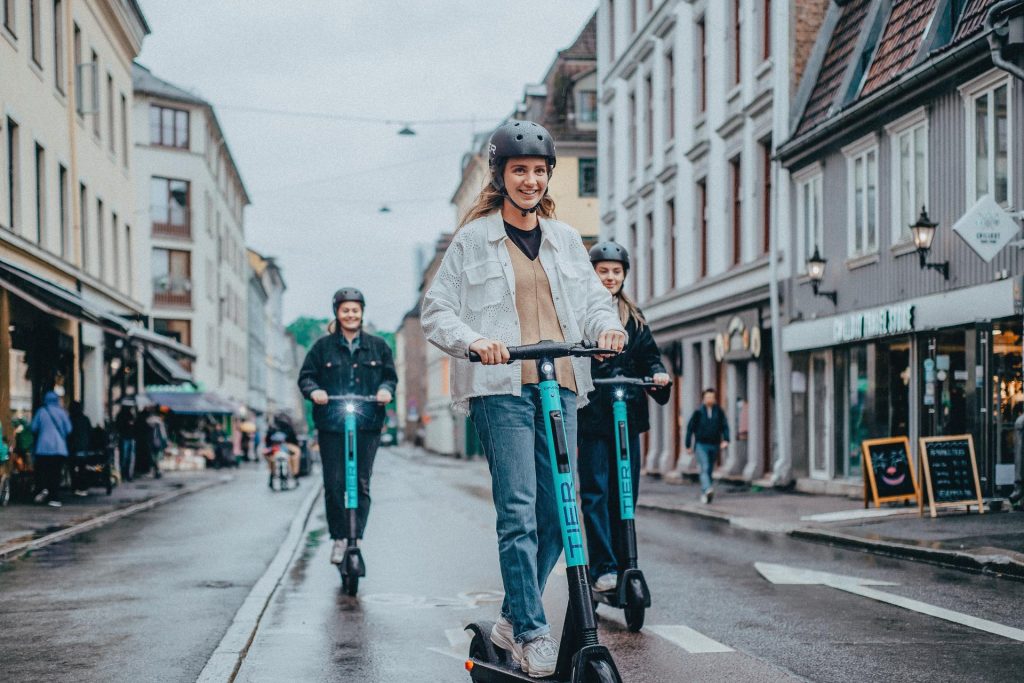
Green Party co-leader and London Assembly transport lead Sian Berry AM is hopeful about electric scooters but emphasised the importance of ensuring the London e-scooter trials do not make streets less accessible.
She said: “E-scooters exist and can’t be un-invented, but they desperately need regulating so they don’t pose a risk to older and disabled people on pavements or to their users.
“They are already being used by a diverse group of Londoners and if the safety issues are addressed could contribute to low carbon mobility by helping connect gaps in public transport.”
Like many Londoners Haren Thillainathan has been working from home during the pandemic but when things open back up he hopes to join commuters heading back the office.
But he is wary of the e-scooter riders and said: “If you are taking advantage of the trial, please make sure you’ve read all the rules, do the safety course, operate your scooter responsibly. If somebody suddenly crashed into you wouldn’t like that.
“Do be aware that there are blind pedestrians, mothers with buggies, people in wheelchairs, and you need to be aware of all of them.
“My overall message is that what we want at the end of the day is safety and security for the blind and partially sighted to be able to make their journeys with confidence around London and that’s what we will be challenging TfL, London Councils and the scooter providers to demonstrate. That this is a safe form of transport.”
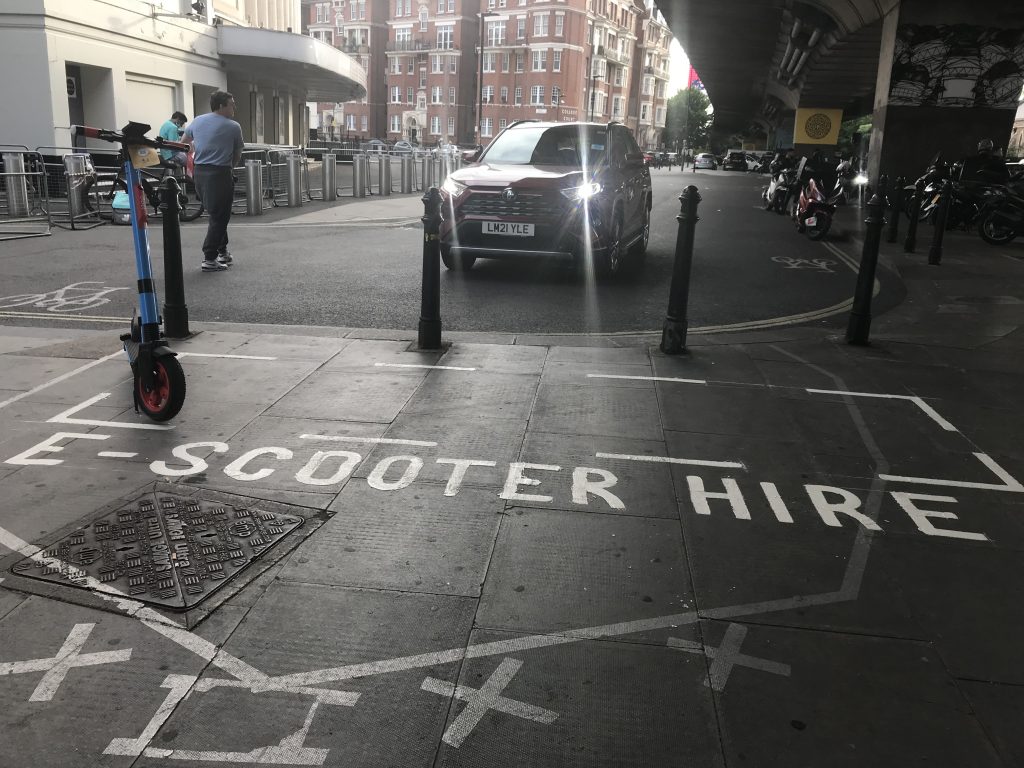
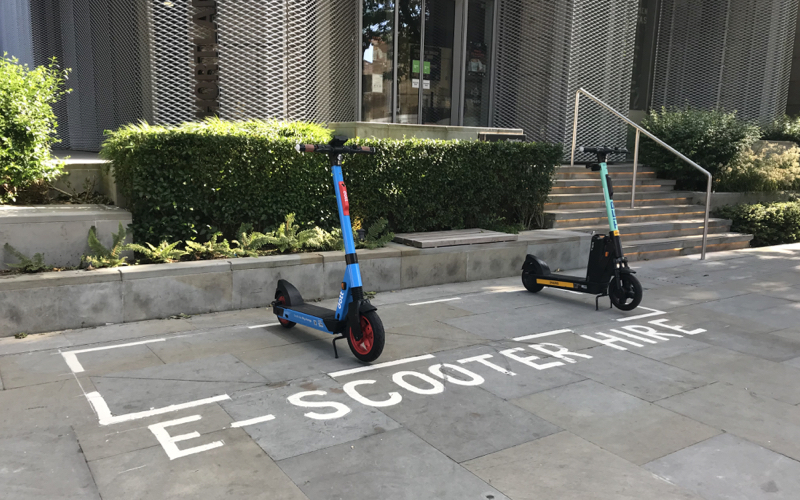
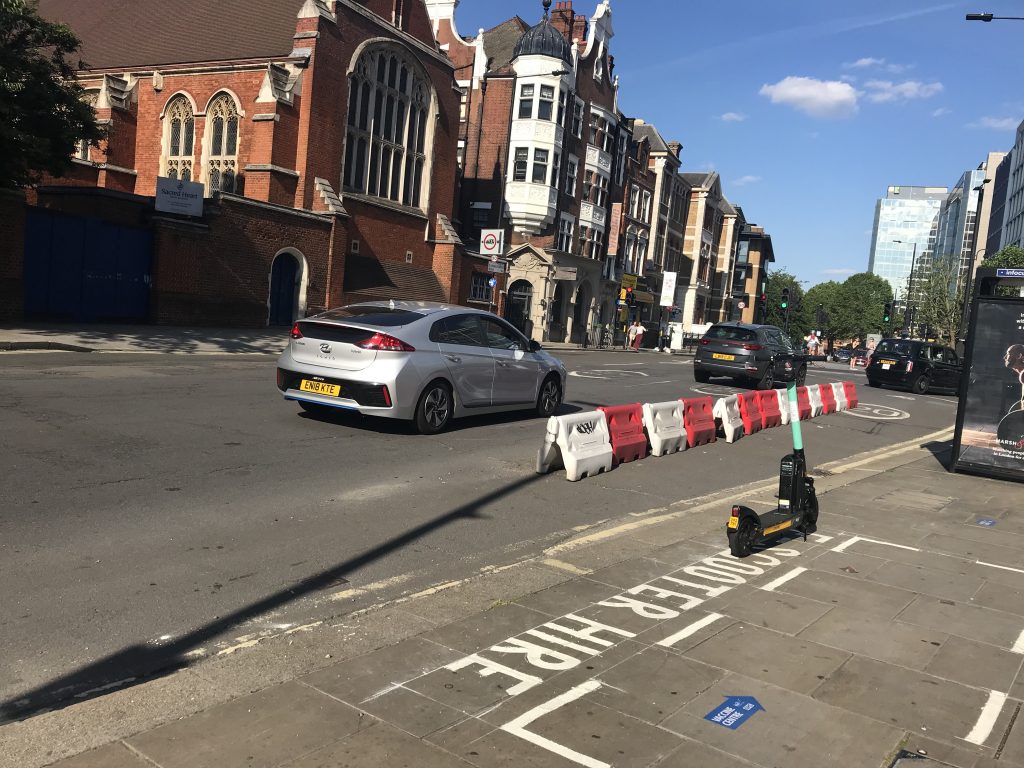
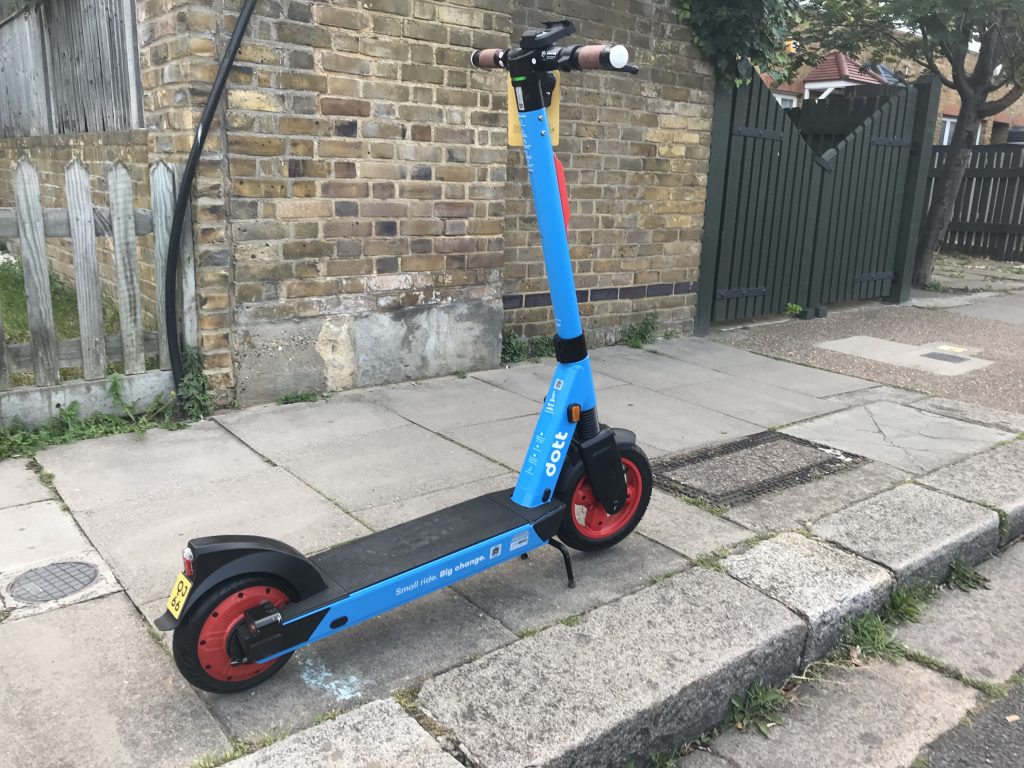
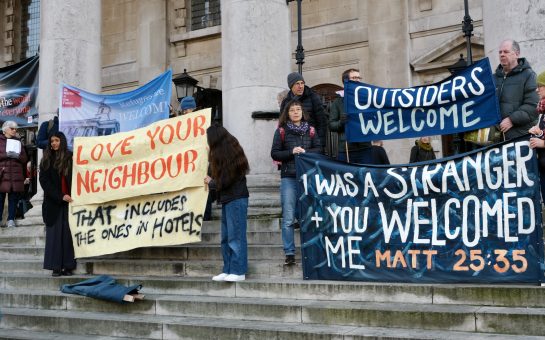
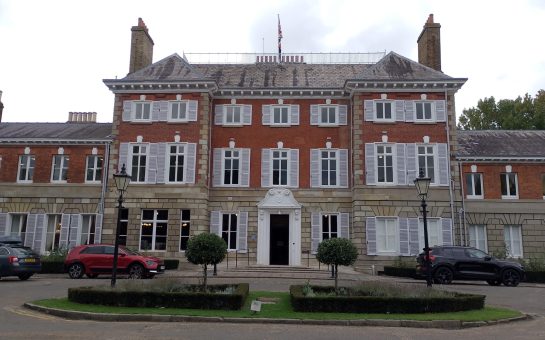

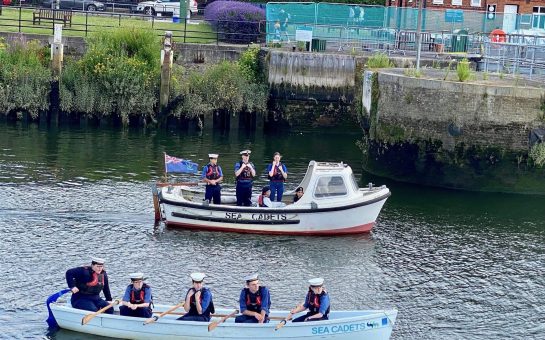

Join the discussion
Sarah Gayton is totally right. The DfT and councils are hell bent on adopting an e-scooter, which is just a scooter with a D.C motor and it’s fine because it’s electric and ‘green’. Their trial doesn’t allow for the anxiety and stress caused to all pedestrians, when they are illegally used on pavemnts and crossings.
Your supposed to report it to happy clappy operators but not the council like Liverpool and Birmingham who fob you off to VOI.
The trials have encouraged A dramatic increase in private illegal use and it will get worse. Today twice in London N1, I have had private users illegally on pavemnts pass me at speed and steer away at the roast moment of on my shout. It’s disgraceful, the situation our government has put us in. It has unleashed the worst element of dissafected predominant males to frisgheten predestrians. How is that inclusive?